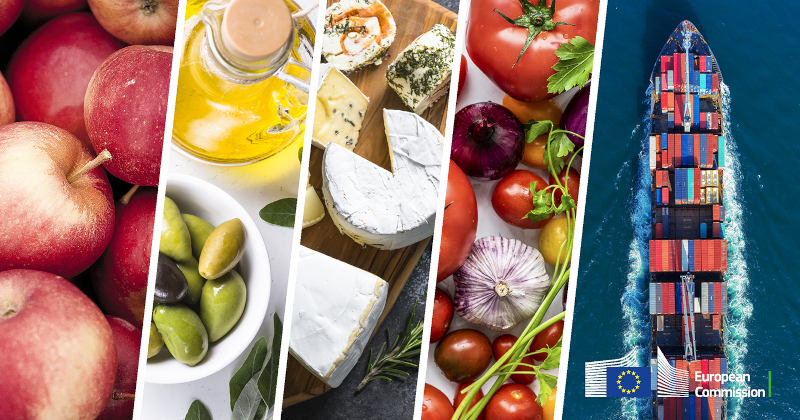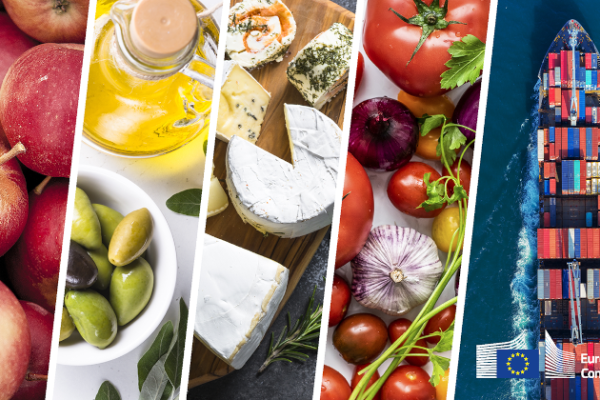
In February 2024, the EU agri-food trade surplus reached €6.2 billion, representing an increase of 24% compared with January. The EU remains the top world’s exporter of agri-food products thanks to its highly renowned and large production. Export values increased significantly, among others, for olives and olive oil due to higher prices. EU imports slightly decreased in February 2024, despite a surge in import value of cocoa. Overall, both imports and exports are stable compared with last year. These are the main findings of the latest monthly agri-food trade report published today by the European Commission.
Exports
EU agri-food exports in February 2024 increased by 5% compared with January and reached €19.4 billion. In addition to olives and olive oil, the value of exports of mixed food preparations and ingredients also increased due to higher export volumes and prices (+10% compared with February 2023). The EU also exported higher volumes of cereals, sugar and isoglucose that month. The exports of dairy products remain strong but their value decreased by 5% because of lower prices.
The UK is still the first destination for EU exports with higher volumes of beer, cider and other beverages, pig meat and preparations of fruit and nuts being exported. The second destination is the United States with EU exports there increasing by 9% compared with the same month last year. This is explained to a large extent by an increase in volumes and prices of olives and olive oil’s exports. Similarly, EU exports to Japan grew by 11%, mainly due to larger exports of tobacco products. While remaining at a high level, EU agri-food exports to China and Russia decreased.
Imports
The value of EU agri-food imports reached €13.2 billion in February, a slight decrease of 2% compared to the previous month. This is mainly caused by reduced prices across many product categories but the situation remains contrasted. While prices of cereals, oilseeds and protein crops decreased, they increased for cocoa products, olives and olive oil. Imports in the category coffee, tea, cocoa and spices had the largest increase (+EUR 784 million, +23%), which is mainly explained by increased prices of cocoa products. For what concerns fruit and nuts, the increase has been driven by higher imported volumes.
Imports from Argentina, Australia, Canada, Indonesia and Ukraine decreased due to lower imported volumes and prices for certain goods. On the other hand, imports from Côte d’Ivoire, Egypt, Morocco, Tunisia and Türkiye went up, driven by cocoa products and fruit and nuts.
More insights as well as detailed tables are available below in the latest edition of the monthly EU agri-food trade report.
Details
- Publication date
- 24 May 2024
- Author
- Directorate-General for Agriculture and Rural Development
- Location
- Brussels



